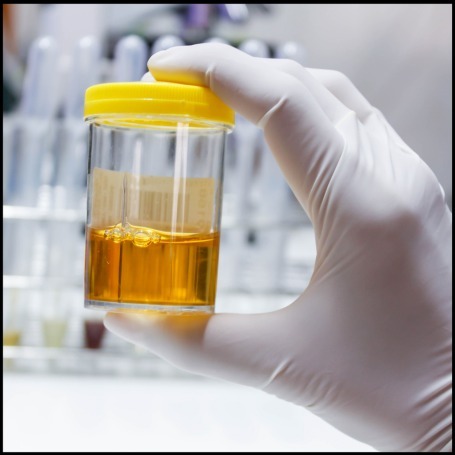
The urine catecholamines test involves measuring the concentrations of catecholamines and their metabolites, such as vanillylmandelic acid (VMA) and homovanillic acid (HVA), in a urine sample.


This test is often used to diagnose or monitor conditions that affect catecholamine production or metabolism. Catecholamines are a group of hormones produced by the adrenal glands that play a critical role in the body’s response to stress and regulation of several physiological processes. These include epinephrine (adrenaline), norepinephrine (noradrenaline), and dopamine.
1] Diagnose Pheochromocytoma: This is a rare tumor of the adrenal gland that leads to excessive production of catecholamines.
2] Evaluate Adrenal Gland Function: Abnormal catecholamine levels can indicate adrenal gland disorders or other endocrine problems.
3] Monitor Treatment: For patients with diagnosed conditions affecting catecholamine levels, this test helps monitor the effectiveness of treatment.
4] Assess Stress Responses: High levels of catecholamines can reflect the body's response to stress, potentially highlighting underlying health issues.
1] Sample Collection: The test requires a urine sample, which is typically collected over a 24-hour period. This helps provide an accurate measure of catecholamine levels throughout the day.
2] Laboratory Analysis: The collected urine is analyzed in a laboratory to measure the concentrations of catecholamines and their metabolites. Techniques such as high-performance liquid chromatography (HPLC) or mass spectrometry are commonly used for accurate measurement.
3] Result Interpretation: The results are compared to normal values to determine if catecholamine levels are elevated or decreased.
A] Normal Results: Normal urine catecholamine levels vary based on age, sex, and individual health conditions.
1] Epinephrine - 1.00 - 44.00 µg/g creatinine
2] Norepinephrine - 9.00 - 112.00 µg/g creatinine
3] Dopamine - 30.00 - 350.00 µg/g creatinine
B] High Catecholamines: High levels may suggest conditions such as pheochromocytoma, stress, or other adrenal gland disorders.
C] Low Catecholamines: Reduced levels can be indicative of conditions like Addison’s disease or certain other endocrine disorders.
You should choose Diagnopein for your Urine Catecholamines test because we are committed to providing high-quality diagnostic care in a clean and hygienic environment. Our center is equipped with advanced technology to ensure accurate and reliable test results, which are crucial for assessing this test. Diagnopein’s experienced staff is dedicated to handling tests with precision and care, offering you both expertise and comfort. We also offer affordable pricing, making essential health diagnostics accessible without compromising quality. For timely, professional, and affordable cardiac testing, Diagnopein is your trusted partner for your healthcare.
The test measures catecholamine levels in urine to diagnose and monitor conditions affecting the adrenal glands and sympathetic nervous system.
A 24-hour urine sample is collected and analyzed in a laboratory for catecholamine levels and their metabolites.
Avoid caffeine, alcohol, and stress as they can affect catecholamine levels.Follow any specific instructions given by your healthcare provider.
The test is non-invasive and involves only urine collection, so there are minimal risks involved.